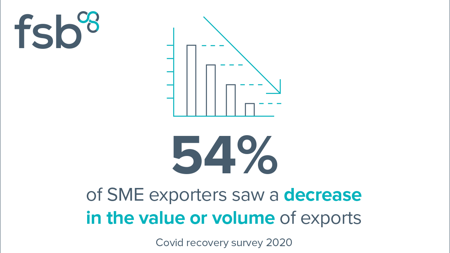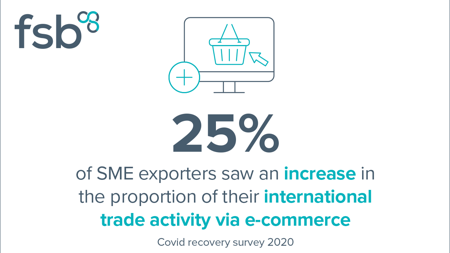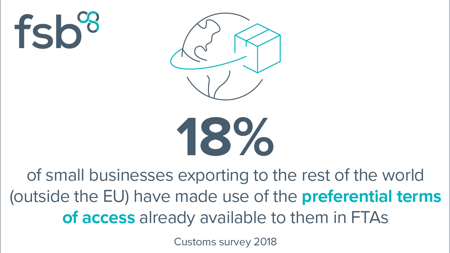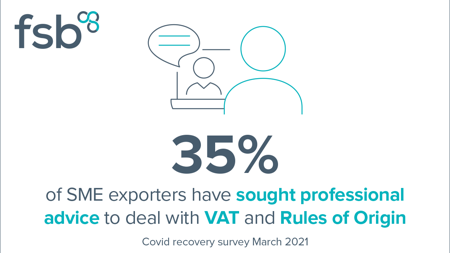Foreword
Small businesses worldwide faced unprecedented challenges in 2020 and 2021. The global economic crisis caused by the coronavirus pandemic was the worst since the Great Depression, and small businesses have been disproportionally disadvantaged by successive lockdowns and disruption caused to global supply chains.
Many UK small businesses that trade with the EU, our largest and closest export market, have also had to become familiar with customs processes for the first time following the end of the transition period on 31 December 2020. Others have looked on as in-principle trade deals are signed with new markets further afield, wondering how to take advantage of this new global drive. Although SMEs are working hard to adjust to the UK’s new trading relationship with the EU, many have experienced disruption and additional costs, with a significant number choosing to stop exporting permanently or temporarily.
As we look beyond post-pandemic recovery as an independent trading nation, the UK Government has a unique opportunity to help drive growth and economic recovery by unlocking the export potential of the UK’s smallest businesses. The benefits to the wider economy of supporting small firms are clear – following the 2008 recession, nine in ten people who moved from unemployment back into the workforce did so by working in a small business or setting one up through becoming self-employed.
Small firms make up the vast majority of businesses in the UK but are under-represented in international trade. Previous FSB research has identified the barriers that deter small firms from exporting, from finding overseas customers to navigating foreign regulations. Small firms are less likely to have access to the resources required to meet the upfront costs and challenges of exporting, so Government support is often the first port of call for small businesses interested in internationalising. This is not to say that small firms are inadequate or helpless; by contrast they can be incredibly agile, innovative and disruptive compared to large incumbents. We know that small businesses that have secured smart, on-demand support have gone on to great things for society and the economy; that is the approach we are trying to evolve and improve so that more small businesses can follow. By using its forthcoming export strategy to commit to targeting its support towards small and micro enterprises, Government can add the much-needed economic fuel injection – creating more first-time exporters and encouraging existing exporters to reach new markets.
For Government support to reach all businesses that would most benefit, it is important to build an accurate picture of the small business exporting landscape and the challenges they face. Government will be able to use the new Trade Act to gather accurate data to build a more detailed understanding of small business needs, which will help to target support initiatives towards the areas where they are most needed. Small businesses are already embracing the opportunities of digital transition. The coronavirus pandemic accelerated this digitalisation shift and showed how innovative small businesses are. This trend will only continue, and the Government should build on its work to champion paperless trade under the UK presidency of the G7 by promoting the WTO Joint Statement Initiative on e-Commerce and the UNCITRAL Model Law on Electronic Transferable Records.
Increasing small business participation in international trade requires everyone to come behind a clear and focused agenda of reforms for the new world of global trade. For the first time after the pandemic, our report sets out recommendations for policymakers to adopt and see a step-change in exports, fostering a new culture of exporting among the UK’s smallest businesses. From the creation of a new central digital hub for expertise, best practice and resources, to new flexible funding that small firms can use to access tailored support that suits their business and their prospective new market. We look forward to engaging with Government to unlock the export potential of the UK’s SME community.
Key Findings








Recommendations
For details of our recommendations in full and our supporting evidence download our complete report.
Download the full report
For full details of our recommendations, data and references download our report in full as a PDF.



